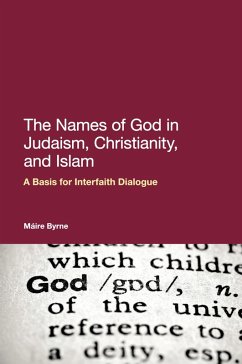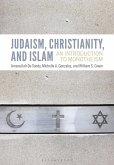This book offers a welcome solution to the growing need for a common language in interfaith dialogue; particularly between the three Abrahamic faiths in our modern pluralistic society. The book suggests that the names given to God in the Hebrew Bible, the New Testament and the Qur'an, could be the very foundations and building blocks for a common language between the Jewish, Christian and Islamic faiths. On both a formal interfaith level, as well as between everyday followers of each doctrine, this book facilitates a more fruitful and universal understanding and respect of each sacred text; exploring both the commonalities and differences between each theology and their individual receptions.
In a practical application of the methodologies of comparative theology, Maire Byrne shows that the titles, names and epithets given to God in the sacred texts of Judaism, Christianity and Islam contribute towards similar images of God in each case, and elucidates the importance of this for providing a viable starting point for interfaith dialogue.
In a practical application of the methodologies of comparative theology, Maire Byrne shows that the titles, names and epithets given to God in the sacred texts of Judaism, Christianity and Islam contribute towards similar images of God in each case, and elucidates the importance of this for providing a viable starting point for interfaith dialogue.









